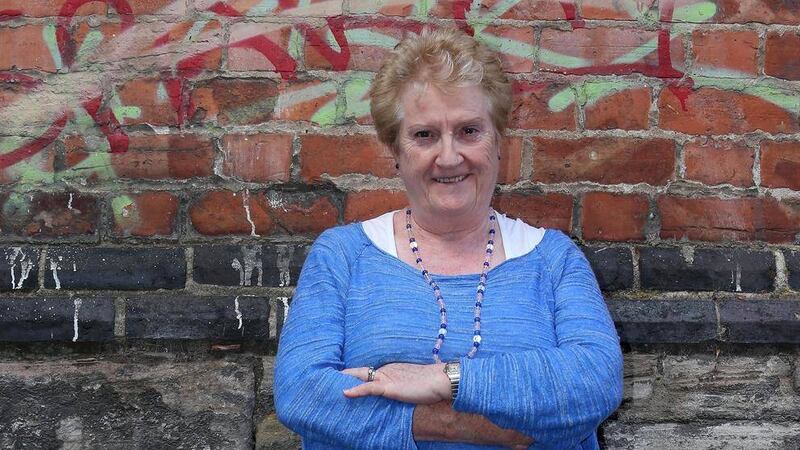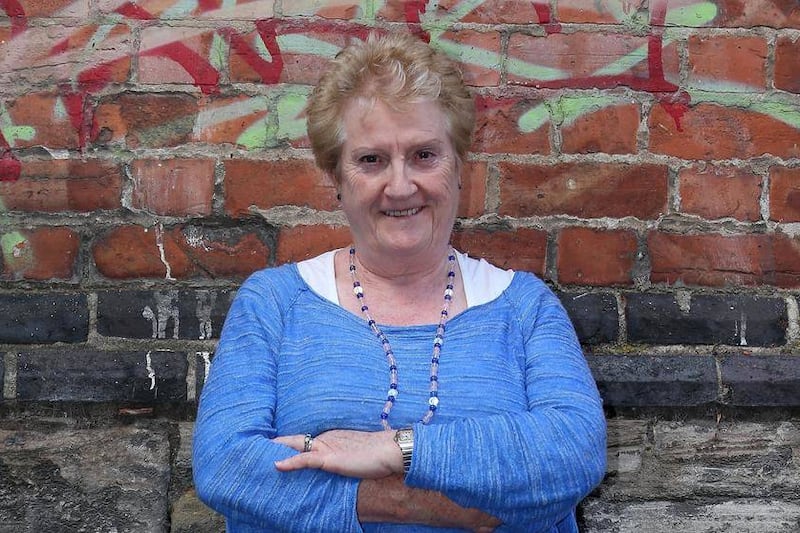IT'S almost obligatory for successful female journalists to turn to fiction at a certain point in their careers: Shirley Conran back in the day, Julie Burchill in the '90s and our own bestselling novelist Claire Allan from Derry have all made the journey.
Roisin McAuley, a current affairs producer who started out on Spotlight and has reported from trouble spots including Sarajevo and Jerusalem, is no exception.
But her writing ability and agility at hopping between genres ("hate that word" she says) mark her out among the pack and make comparisons with Maeve Binchy more than credible.
"Actually, when people ask what my writing is like, I say I am a cross between Joanna Trollope and Elizabeth Jane Howard," offers Roisin, whose new thriller, Bogman (written under the nom de plume RI Olufsen), is out now.
"Maeve was a great friend and I liked her work and her interest in people."
As Roisin tells it, the job of current affairs reporting "left her" after she was offered a gig by Channel 4 involving 'reality filming' in a holiday hotel abroad.
"We'd look at whether the English got drunk and whether the Germans really stole the towels. I actually considered it overnight, but no."
She'd started writing classy romances after her very first venture into publishing, a guide to golfing in Ireland. Her first novel was Singing Bird and Roisin's London agent, Charlie Viney, ensured there was a decent bidding war.
Roisin takes writing seriously. We discuss the inherent sexism of the way books are marketed.
"The romance plot of woman meets man, falls in love and they get together was really developed in the nineteenth century," she comments.
"It was subverted in the 20th century but is still being written today by both men and women.
"When men write the romance plot, it's called literature. But when women write it, it's dubbed 'commercial' and is marketed as escapist, written by-women-for-women. And when it's marketed as chick lit, another term I hate.
"It's intended for an even narrower market – single women aged between exactly 30 and 45."
Roisin says she works very hard on her opening sentences. They are certainly rhythmic and attention seeking in the right way.
Bogman, a thriller in the Scandi noir mode, starts rather differently: "Tobias Lange was playing golf when he got the call about the body in the bog."
Terse and slightly Mickey Spillane, its beginning shows that Roisin McAuley is able to move from relationships to police procedural with ease. Inspired by Heaney's poem about Tollund man, she visited Denmark before starting to write.
Roisin says she used a nom de plume, RI Olufsen, partly because publishers tend to pigeonhole their authors.
But with a new identity, she can forge a new relationship with fans of Wallander et al – and, for the record, the author prefers the original TV version of the tortured detective.
Tobias, her own policeman hero, isn't quite the angst-ridden man we've become familiar with from the recent tsunami of gloomy Scandinavian thrillers.
"My detective isn't the usual alcoholic, depressive, no," Rosin confirms. "He is divorced but has a nice relationship with his daughter."
The writer also comes up with nice throwaway lines for Tobias, as when he meets an attractive woman, thinks she may be too demanding. Then we learn "Tobias thought he might have the energy for her after all."
She embodies the male character well.
Roisin is such an expert journalist that, as we sit sipping coffee in the sunshine outside Deanes at Queen's, she gets in first and starts interviewing me. The only other person I've known to do that is Eamonn Holmes.
But as we discuss her latest novel, it's clear this author was a writer from the get-go.
"I don't see it as a transition from journalism to writing, as I always wanted to write," she says.
"When I was a child, I remember hearing people tell a story and think 'You're doing it wrong.' Anyway, it's all storytelling, all the same job."
Brought up outside Cookstown in mid-Ulster, Roisin says she always thinks of herself as a 'Tyrone woman'. I ask her what that means.
"Good question. I suppose it means to me being able to look up and see a mountain, in my case Slieve Gallion and the Sperrins and then you've got Lough Neagh.
"Of course, they probably aren't 'real' mountains but I love the landscape. And now we're back in Belfast, I can again look up and see hills."
At age 10, Roisin went to St Joseph's convent boarding school. She says she looked forward to it because of reading the Chalet School books.
"My elder sister Una was there at the same time," she tells me.
Once Miss McAuley arrived, the nuns in charge must have realized they had somebody to reckon with. One escapade arose because of Roisin's scientific interests. She explains:
"I was given The Sky at Night book with a map of the sky at the back. So one night I led my dormitory of 11-year-old girls onto the school's flat roof to look at the stars. I can still name them all – Orion, the Pleiades and so on."
Roisin is married to Richard Lee, an English ex-corporate lawyer and wine expert whom she met on a walking holiday in Europe. She's entertaining about how they linked up, explaining it was not the coup de foudre that she occasionally exploits in her fiction.
"No, I think Richard chatted up every woman there but me. When I came back to London, we bumped into each other. Our first date was a trip to the theatre.
"Although the cast was stellar, the production was awful. At the interval, we looked at one another and Richard said 'Do we have to stay for the second half?'"
At that point, Roisin says she knew they were kindred spirits.
Bogman is a grisly tale. Bodies crop up with increasing frequency and the murderer seems to have stamped on one of their hands each time during the savage final attack..
So does Roisin McAuley relish writing about the dark side?
"Oh no, I don't like violence at all, it's the puzzle of a thriller I enjoy." she protests.
But she does like hinting at human nature's nastier and more pleasurable aspects, obliquely.
Roisin explains: "You don't have to spell everything out, you know. It's the same with sex, we don't need everything that happens in the bedroom, you can suggest. There's no explicit sex in Jane Austen yet think how the sexual tension crackles in Pride and Prejudice."
In her novels, Roisin McAuley encourages our imaginations to do the rest.
:: Bogman is out now, published by Crux (£8.99). E-books of Roisin McAuley's first two novels, Meeting Point and Singing Bird are available from Cruxpublishing.co.uk



